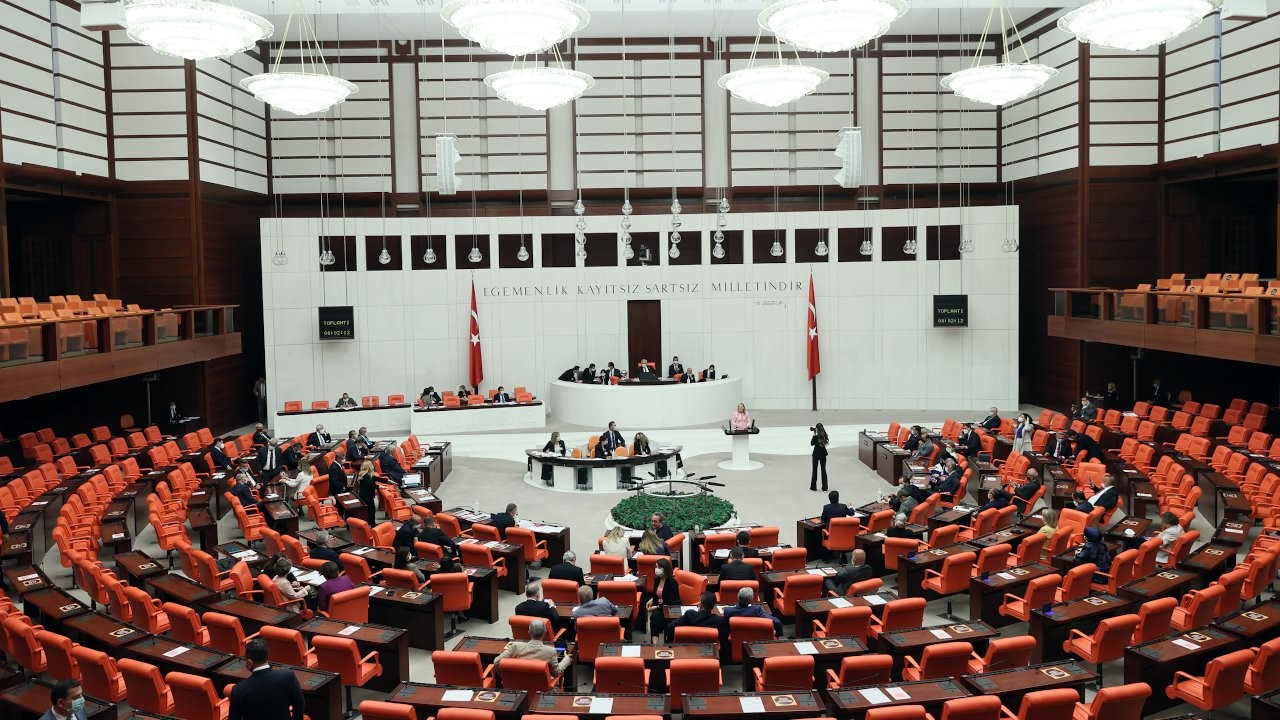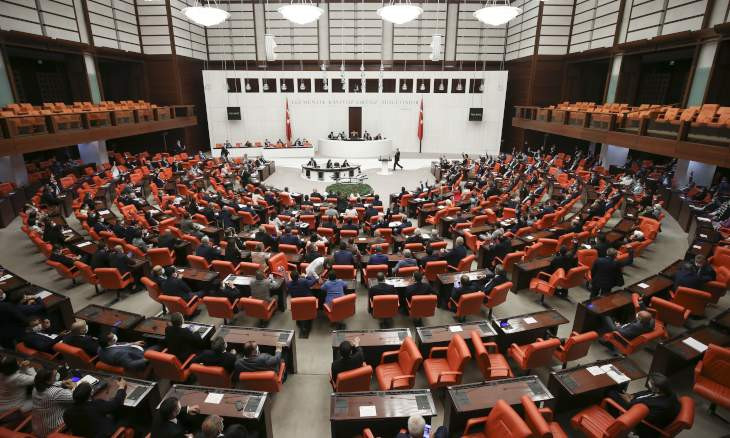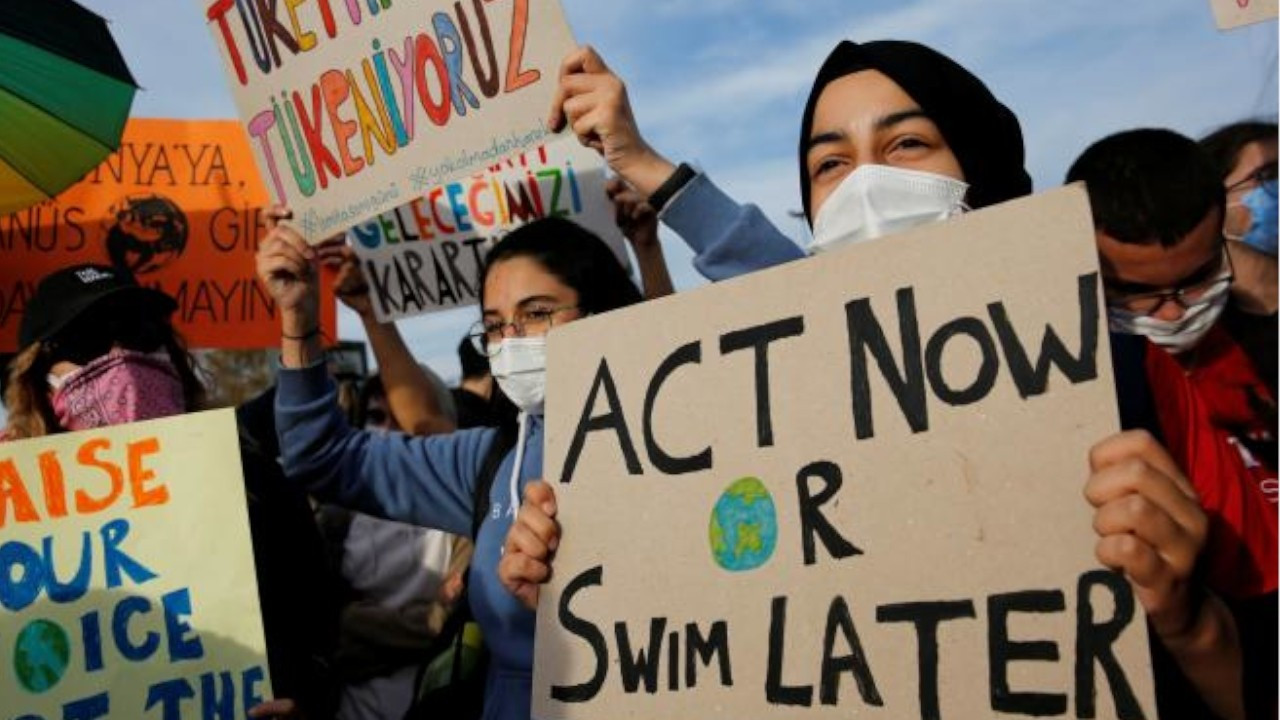Turkish ministers ignore parliamentary questions, send links instead
Felicity Party lawmaker Abdulkadir Karaduman has asked 17 Turkish cabinet ministers why they refused to answer parliamentary questions filed by opposition MPs. Only six ministers responded to his query, and all of them either gave links to FAQ pages or to their ministry’s website.
Ogün Akkaya / DUVAR
Following hundreds of instances of parliamentary questions going unanswered by the Turkish government, Saadet Party lawmaker Abdulkadir Karaduman submitted written queries to the 17 ministers asking for an explanation for the lack of response. Only six ministers answered him. Of those six, several sent links to their ministry website, while others sent links to FAQ and info sections of the Parliament website.
According to the rules of the Grand National Assembly of Turkey (TBMM), questions by parliamentary representatives must be prepared in written form and, when submitted to ministers, must be answered in no more than fifteen days. However, under the current ruling Justice and Development Party (AKP) government, this has not been the case - many ministers have had their questions go unanswered entirely, or have received answers after several months.
When lawmaker Karaduman submitted his queries about this breach in Parliamentary protocol, the problem persisted. No minister gave him a substantive response, recognizing the breach or addressing its root causes.
Derya Yanık, the Minister of Family and Social Services, was the first to answer Karaduman’s query. She said that questions directed to her ministry would continue to be answered “according to the provisions of the Constitution and the rules of procedure of the Grand National Assembly.” She then shared a link to the suggestions for crafting “Written Questions” on the parliamentary website.
Adil Karaismailoğlu, Minister of Transport and Infrastructure, implied that there was a backup in his ministry’s ability to answer questions. Karaduman’s question, he said, was “2,346th of 2,536 written questions submitted to [his] ministry between June 25, 2018, and Sept. 15, 2021.” He said, like Minister Yanık, that responses to the queries were ongoing.
Treasury and Finance Minister Lütfi Elvan, whose ministry has been under fire for its handling of the floundering Turkish economy, suggested Karaduman visit the parliament’s website.
“The data regarding the matter of parliamentary questions is available in the ‘Written Questionnaires’ section of the Turkish Grand National Assembly website,” Elvan said.
Minister of Foreign Affairs Mevlüt Çavuşoğlu, then, claimed that his ministry was careful to answer queries with the “utmost care.” According to his response, citing data from the office of the Presidency from July 5, 2021, his ministry ranks first in terms of response rate.
The last two ministers to answer Karaduman’s queries were Minister of Education Mahmut Özer and Industry and Technology Minister Mustafa Varank. Both suggested, like Ministers Elvan and Yanık, that he consult the Turkish parliament’s website.
According to lawmaker Karaduman, the written questionnaire process is one of the most important measures to hold the government accountable. Without answers, the problems his queries sought to address have only become deeper-seated and harder to solve.
“So far, we have sent more than 350 queries to the presidency and every ministry,” Karaduman said. “The number of queries that were answered in a timely manner can be counted on two hands. In the long run, many of our questions were answered but only after the problems we expressed became inextricable or the grievances of citizens worsened.”

 Ruling AKP plans to bring election, social media laws to parliament in 2022Politics
Ruling AKP plans to bring election, social media laws to parliament in 2022Politics Turkish parliament only hears ruling AKP's draft bills in general assembly, speaker's office revealsPolitics
Turkish parliament only hears ruling AKP's draft bills in general assembly, speaker's office revealsPolitics As Paris climate agreement passes, Turkish opposition silent on nuclear waste billsEnvironment
As Paris climate agreement passes, Turkish opposition silent on nuclear waste billsEnvironment